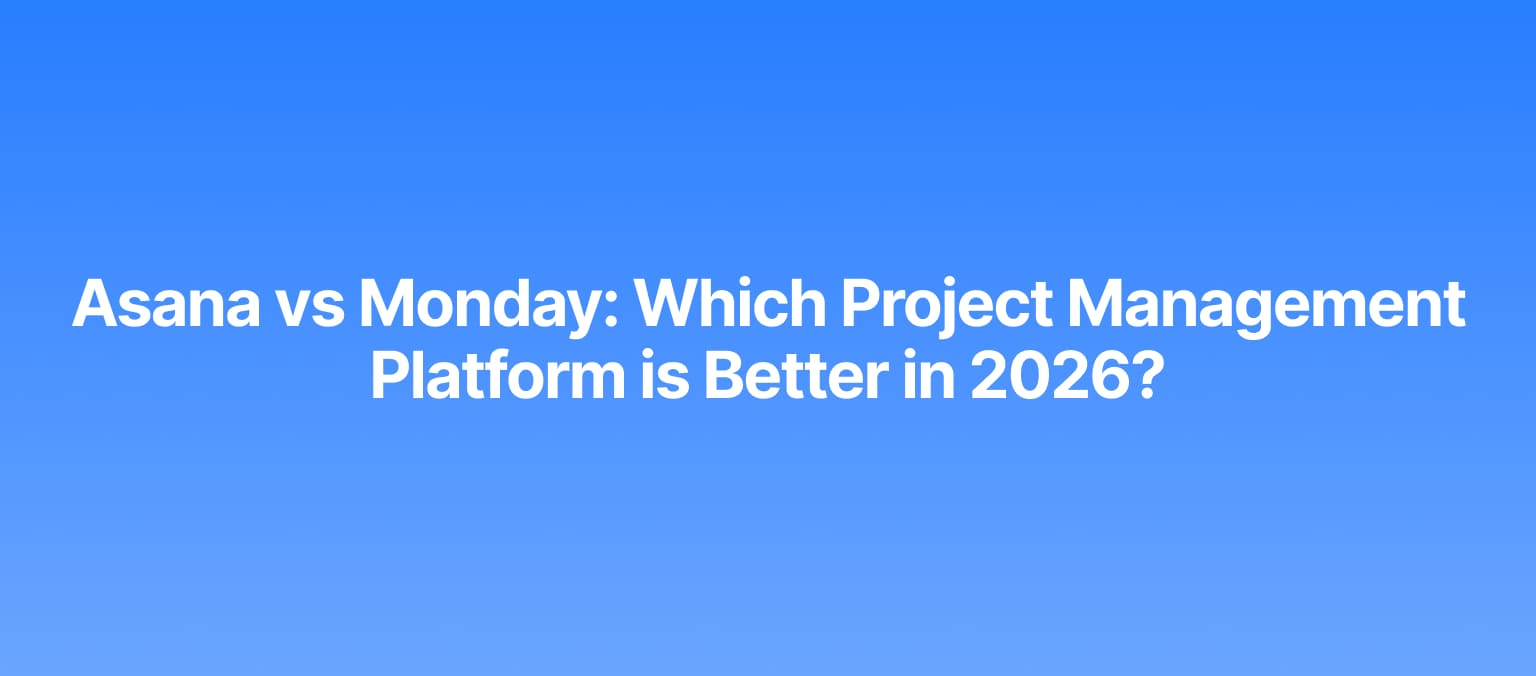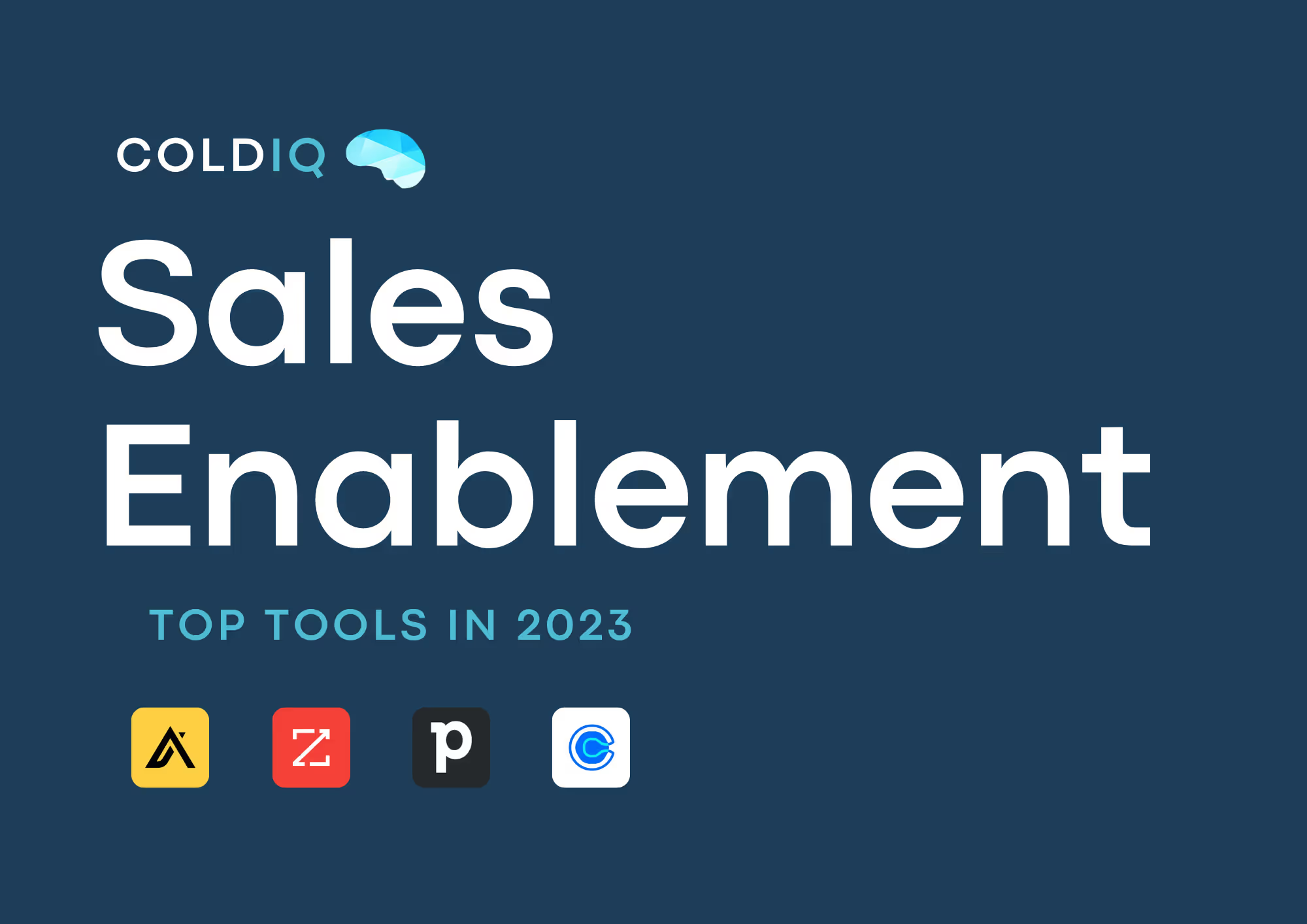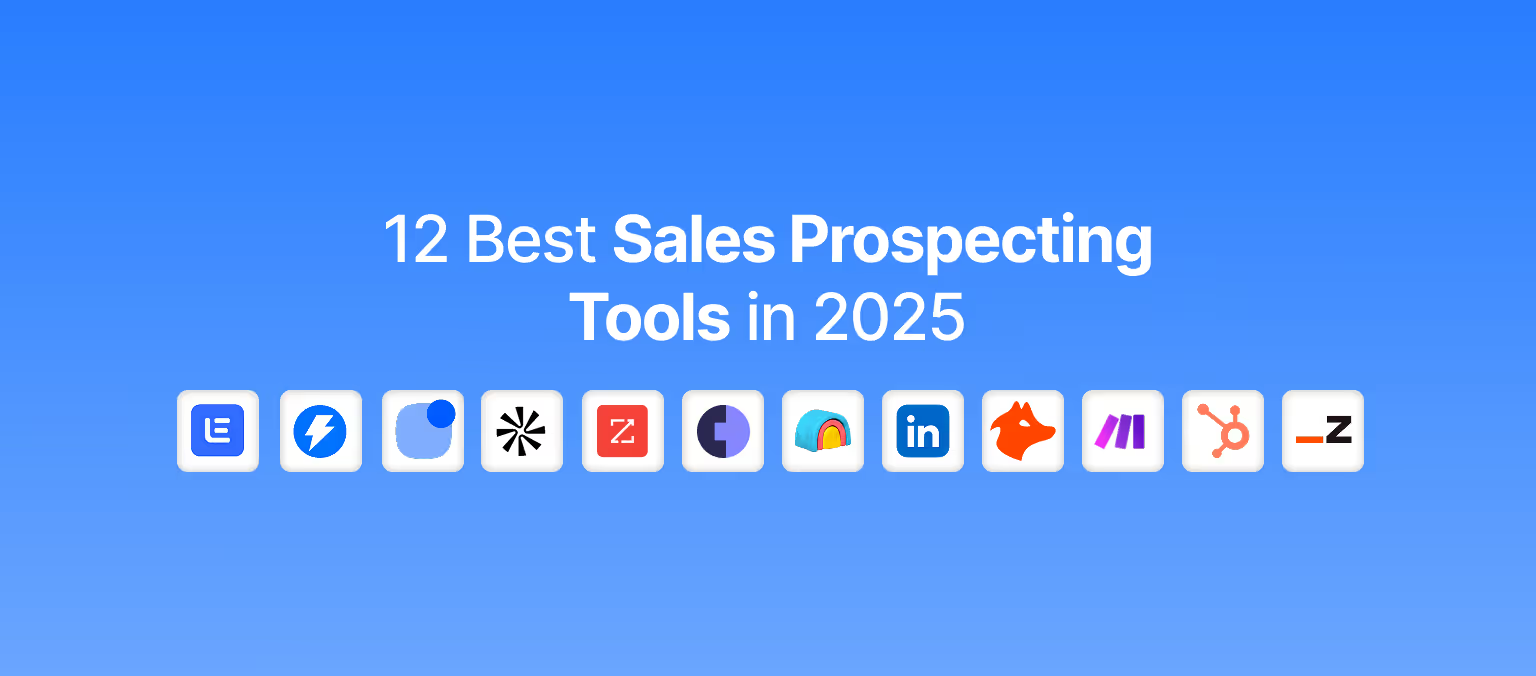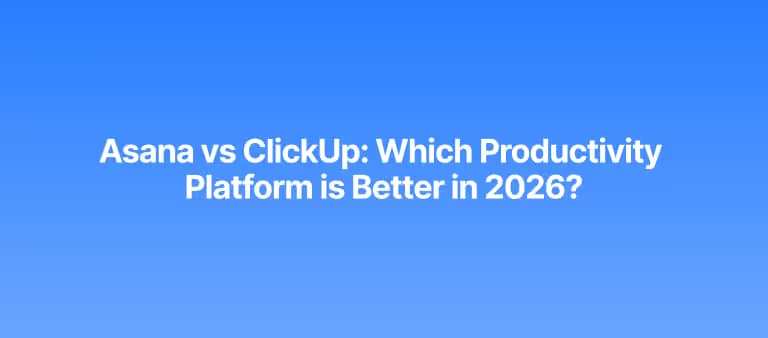The 10 Best Sales Intelligence Tools in 2026
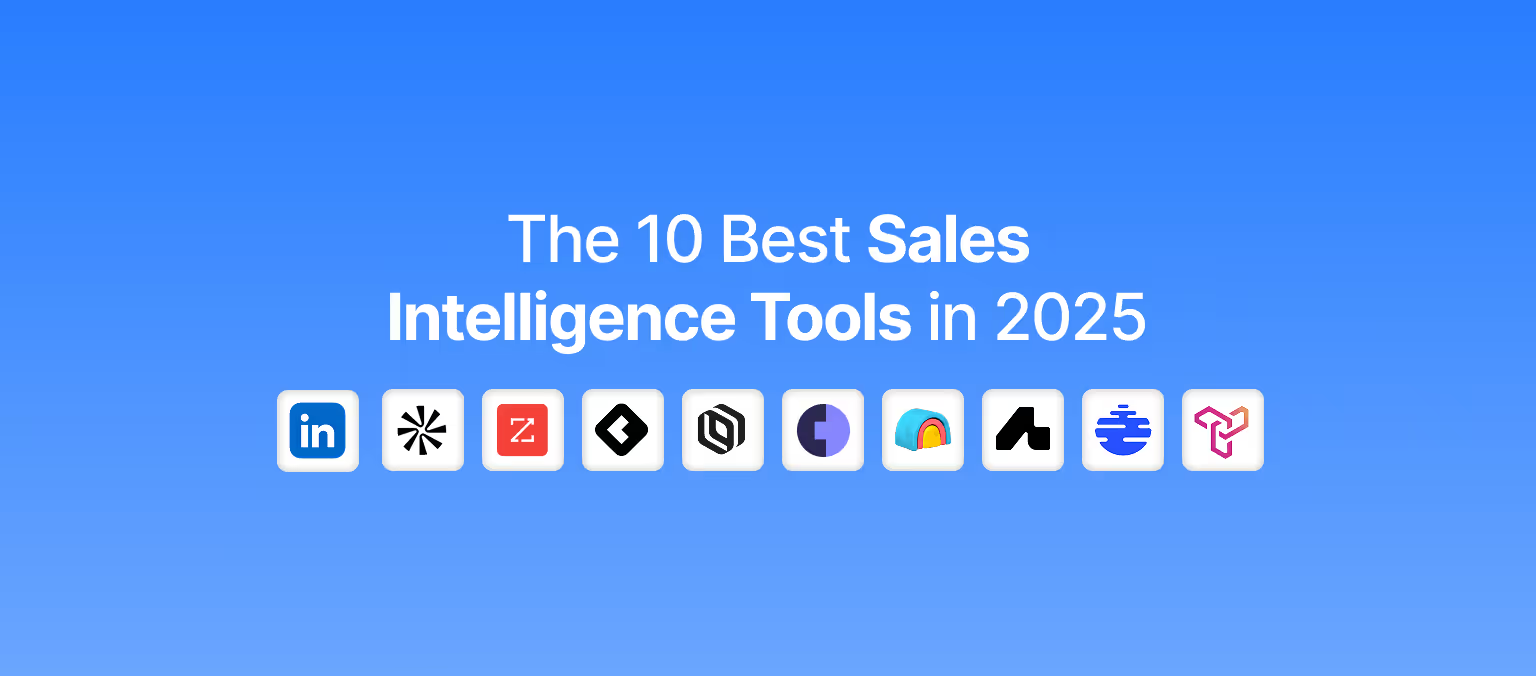
From finding leads to engaging and converting them, sales intelligence tools can make your work a whole lot easier. Of course, we know they’re not going to do the best work for you. Nonetheless, they can take some of the work off your plate, so you can focus on what you like doing best: closing deals.
However, with the ever-growing list of sales intelligence tools in the market — all promising to help you find the qualified leads that will grow your business — figuring out the right one that’s worth your time and money can be a bit challenging.
Which is why we come in. Our sales experts have been testing and working with tons of sales intelligence tools to find out the ones that remove admin work off their to-do list and focus on what brings them joy (converting leads). In this article, we will take a deep dive into the best sales intelligence tools and a simple framework for choosing the right fit, whether you’re a salesperson, GTM engineer, or a founder.
How I Choose the Top 10 Sales Intelligence Tools
Sales intelligence tools gather, analyze, and deliver actionable insights on potential customers and market trends. Companies leverage these tools to improve their sales process, understand customer behavior, and uncover potential opportunities that can positively impact their revenue goals.
Whether you’re a sales rep trying to hit a quota, a marketer targeting ICPs, or a RevOps leader aligning strategy with data, sales intelligence tools offer what traditional methods can’t, which is context, timing, and precision.
However, with numerous sales intelligence tools on the market, selecting the right one can be a challenging task. As a result, I looked for tools that simplify sales processes, not complicate them. Here is what I prioritized when testing each one:
- Ease of Use: No one wants to spend hours learning a new tool. So, I chose the ones that onboarded users easily.
- Key Features: I selected tools that help with tasks like lead generation, data enrichment, cold outreach, or lead management.
- Integration Capabilities: Whether it’s a CRM or a cold outreach platform, I selected some tools that connect easily with systems.
- Scalability: I focused on tools that will accommodate your future needs as your business grows.
While most sales intelligence tools aren’t perfect, these tools, which have been tried by our GTM engineers, save time, streamline your workflow, and enable you to capture opportunities in real time.
| Tools | Key features | Pricing |
|---|---|---|
| LinkedIn Sales Navigator |
• Advanced search • Account IQ |
30 days free plan and paid plan starts at $99/month |
| Apollo |
• Contact database • Intent data |
Free plan and paid plan start at $59/user/month |
| Zoominfo |
• Intent data • Salesflow |
Not publicly available |
| Common Room |
• Activity tracking • Auto-enrichment and segmentation |
14 days free trial and paid plan starts at $1k/month |
| Unify |
• Buyer Signal • AI-powered plays |
Paid plan starts at $1460/month |
| Cognism |
• Intent data by Bombora • Diamond data |
Not publicly displayed |
| Clay |
• Waterfall data enrichmentThe 10 Best Sales Intelligence SoftwareBelow are ten carefully researched sales intelligence tools designed to give your team deeper visibility into prospects, sharper insights, and a smarter way to sell. 1. LinkedIn Sales Navigator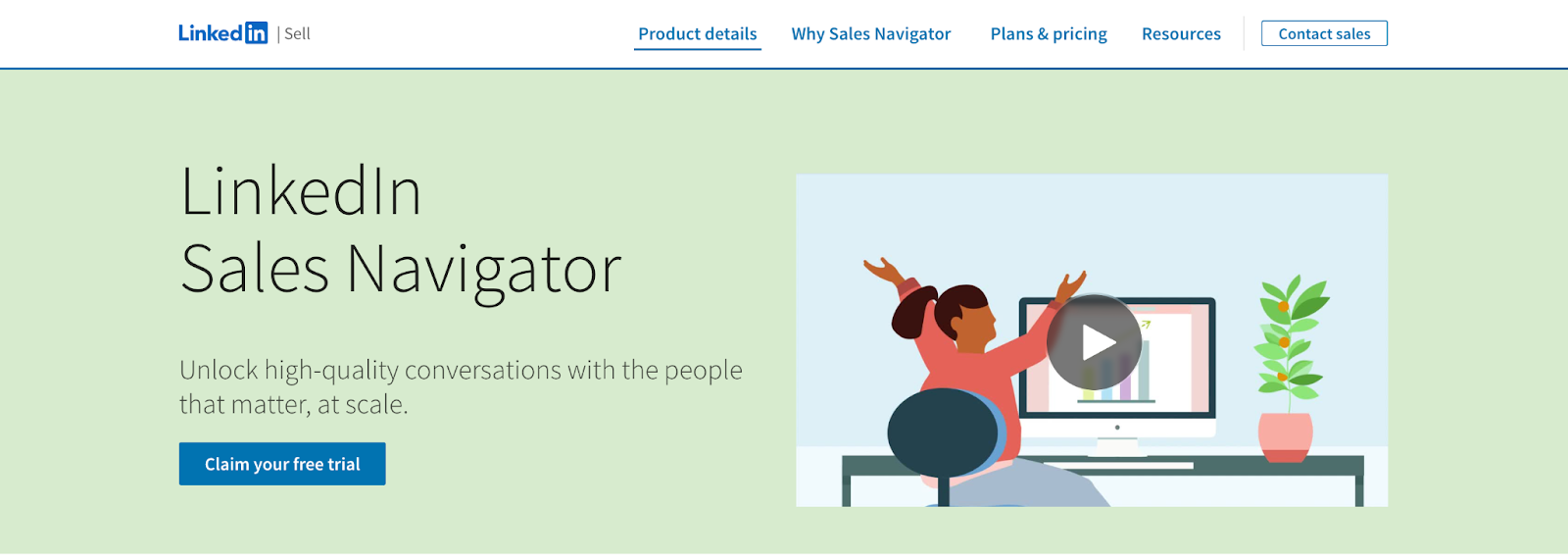 If you’re still prospecting on regular LinkedIn, you’re fishing with a stick in a stocked lake. LinkedIn Sales Navigator is the upgrade your sales engine needs to uncover opportunities. With its Advanced Search, you can narrow down your list to the exact opportunities you prefer. For instance, rather than just typing in “Marketing Manager” in the search bar and hoping for the best, you can filter by seniority, department, company size, location, and even how long someone’s been in their role. It’s like having a search engine made for salespeople, one that helps you find exactly the kind of buyer you want, instead of wasting time on vague leads. Then, there’s also Account IQ, which offers real-time updates on your target accounts. Is an executive changing roles? That’s a conversation waiting to happen. Has your target just organized a funding round? That’s intel to act on. Sales Navigator shows you who to watch, what to say, and when to say it. While others chase cold inboxes, Navigator puts you in the right room, with the right people and company data, and a reason to speak. Pros
Con
Customer Review “Amazing. It's the best tool- the prospecting features, the filter, the newest data” - Abir. A, on G2 Pricing LinkedIn Sales Navigator’s paid plan starts at $99 per month. 2. Apollo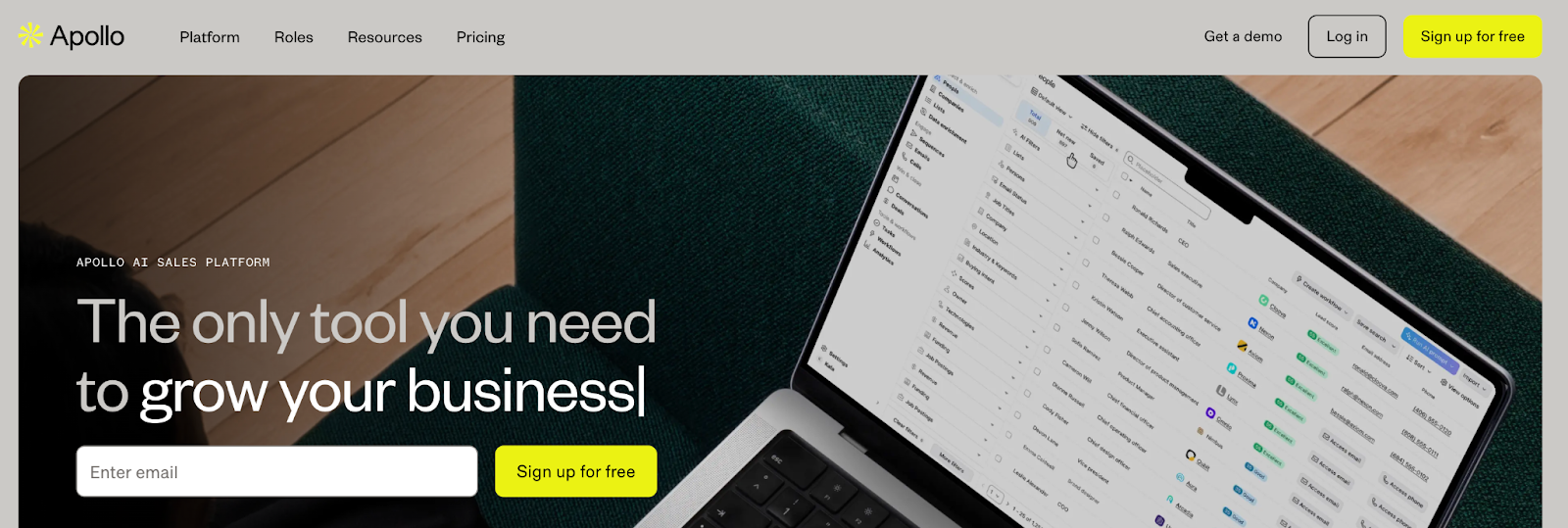 Apollo is a high-speed sales intelligence machine built for reps to connect with their potential buyers. Thanks to its extensive database, you have access to millions of professionals who can supercharge your sales efforts. Besides, its precision filters make it easy to further refine your list to a targeted one. On top of these are real-time intent signals, which indicate a prospect’s interest in your business’s offerings. Whether it’s hiring trends, company expansion, relocation, funding rounds, or website visits, the platform offers you a clear signal that allows you to prioritize the most promising prospects. Instead of random outreach, you’re timing your message with actual business momentum. There’s buying intent scoring, which uses AI to rank leads based on fit and behavior. It factors in past engagement, role relevance, industry fit, and even how similar companies responded. The result? You know which prospects are most likely to convert based on data. It’s sales prioritization with precision. You can also leverage this tool to track sales performance, enabling you to identify what to improve in your workflow. Pros
Con
Customer Review “Ease of use, rich database, easy to navigate” - Xico. M, on G2. Pricing Apollo's paid plan starts at $59 per month. Also read: Clay vs. Apollo: Which Sales Intelligence Platform Should You Use? 3. ZoomInfo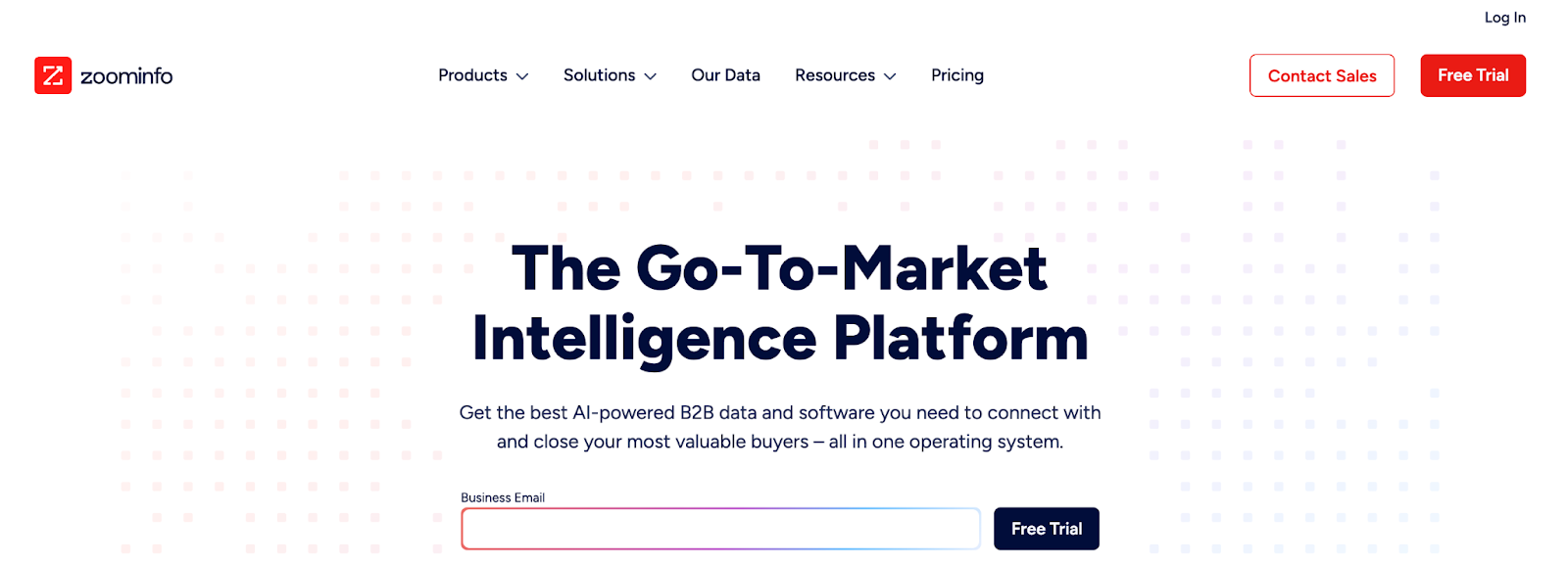 ZoomInfo is one of the top sales intelligence tools to help you connect and close your ideal buyers. Similar to Apollo, you can find B2B contact data, allowing you to connect with decision-makers who can boost your sales efforts. Besides, its AI buyer intent feature doesn’t just tell you who to contact; it tells you when. It surfaces real-time signals early, allowing reps to prioritize outreach to leads most likely to convert, saving time and increasing win rates. Not only that, ZoomInfo automates multi-channel outreach via emails, phone calls, or social platforms triggered by intent signals. This ensures personalized, timely engagement with prospects on their preferred platforms, boosting response and conversion rates. What sets ZoomInfo apart from other tools is its data accuracy and quality. Unlike many other tools, ZoomInfo refreshes its database, providing users with verified data that ensures precise targeting. The major downside is that ZoomInfo isn’t affordable. The price is hefty, making it unsuitable for small businesses. Pros
Con
Customer Review “I highly recommend ZoomInfo Sales, as they have been extremely thorough in their approach to onboarding and training. Our company gets the best leads through the Copilot function, as well as intent searching and daily sales target account lists. We are extremely impressed!” - Amy. Z, on G2 Pricing ZoomInfo’s pricing is not publicly available. 4. Common Room If you’re still relying on guesswork to track buyer interest, you’re missing out on opportunities. Common Room is where community signals meet qualified pipelines, turning online interactions into actual buyer intent. It doesn’t just tell you who they are. It shows you who’s leaning in. Common Room’s intelligent activity tracking gathers conversations and behaviors across digital communities and then surfaces the right accounts based on how people are engaging. This makes sure you’re not chasing cold leads but moving on signals. Also, its waterfall enrichment and identity resolution feature means no more patchy profiles or wasted outreach. It fills in the gaps in contacts and accounts using rich public and product data, and helps you group them based on behaviors, industry, or ICP fit. It’s about knowing which segment is warming up, and which one’s ready for the close. The only downside to Common Room is its hefty pricing model, which makes it unsuitable for small teams or businesses. Pros
Con
Customer Review “Features are generally pretty user-friendly and intuitive, especially in segmenting, tagging, and digging into company/contact information. Native integrations with Hubspot and LinkedIn are incredibly useful. I appreciated how quick it was to set up” - Kristin. R, on G2 Pricing Common Room’s paid plan starts at $1,000 per month. 5. Unify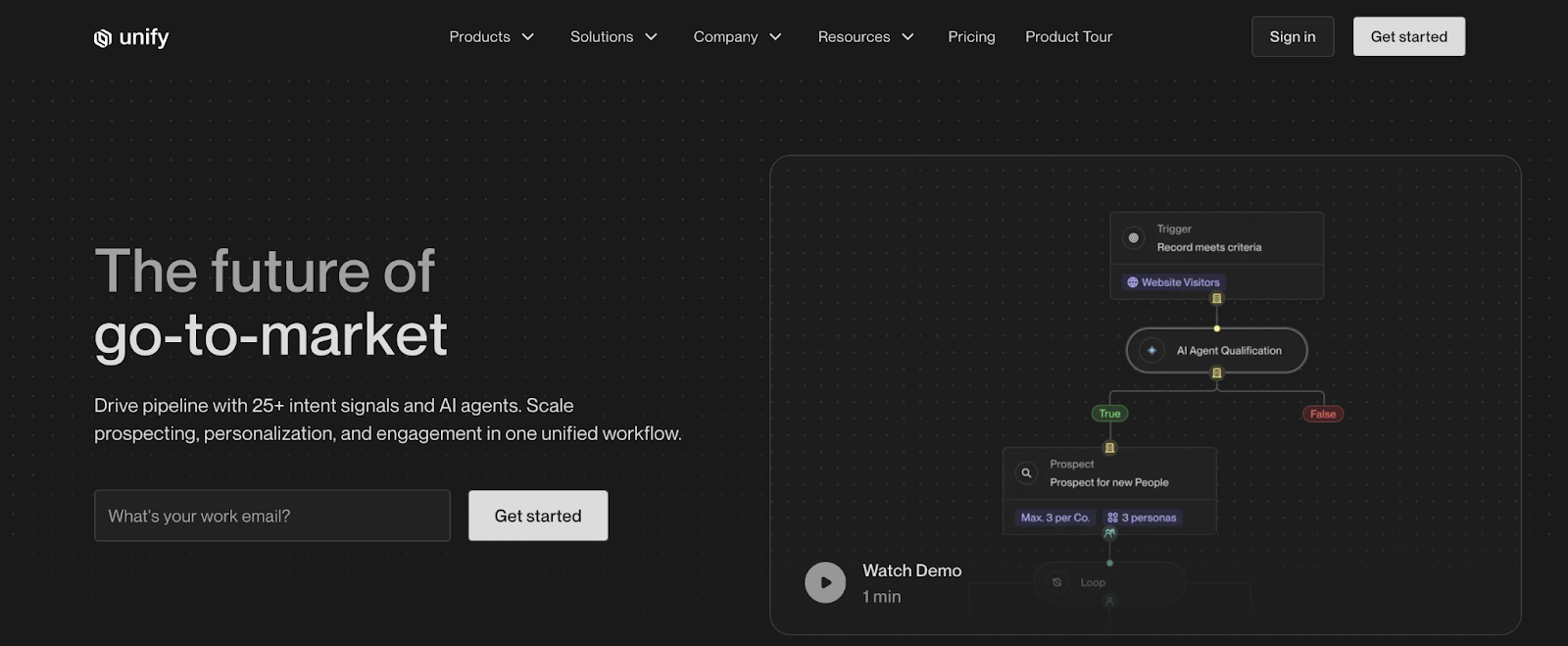 Unify is a full-blown outbound operating system that connects data, intent, AI, and action in one motion. Its real power begins with signal-based prospecting. Unify pulls in over 25 intent signals and then maps those signals to your ICP. So instead of blasting cold emails, you’re targeting buyers who are literally showing signs they’re in-market. Another layer of its intelligence is the AI-powered Plays, where Unify brings together research, enrichment, and multi-channel sequences into one automated flow. The moment a hot lead surfaces, Unify doesn’t wait. It launches the Play, which enriches the profile, researches talking points, drafts the message, and activates email sequences, in a single workflow. What would normally take hours? Done within minutes. Unify's uniqueness is in its alignment. It connects your tools, your signals, and your sequences into one tight loop where AI and human effort play their role without stepping on each other. Pros
Con
Customer Review “I'm a sucker for a beautiful UI and Unify hits that easily but obviously, there's more to it. It's very easy to use, the AI agents work very well, and you can set up outbound motions based on traffic and intent in 5-10 minutes.” — Laurens, N. on G2. Pricing Unify's paid plan starts at $1460 per month 6. Cognism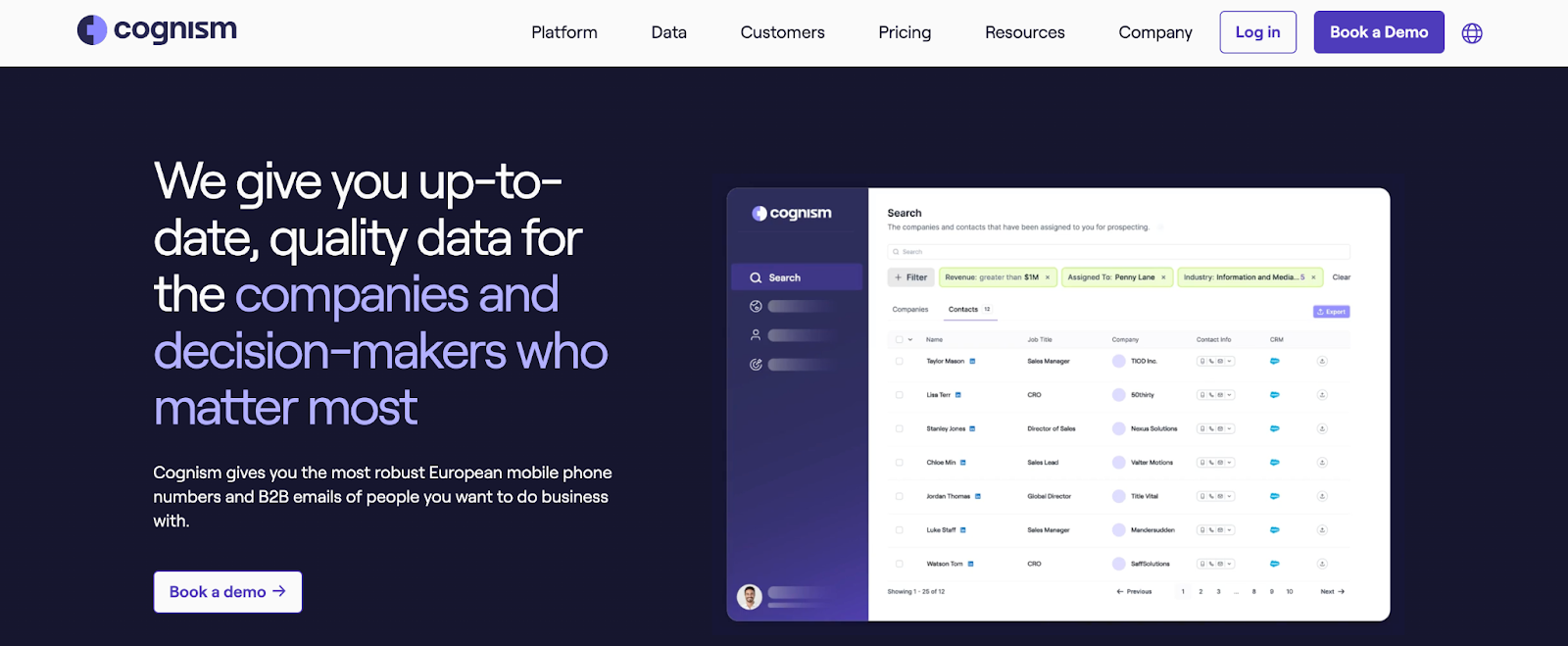 If you’ve been chasing bad data, Cognism flips the game. As a GDPR-compliant global data provider, the platform provides verified data and buyer intent signals, connecting you with people who show real interest in your products or services. It starts with Diamond Data, Cognism’s proprietary dataset of mobile numbers that are verified, human-checked, and frequently updated. That means when your rep dials a decision-maker, it goes through. Add that to firmographic and technographic data, and suddenly you’re not just calling the right company, you’re calling the right person at the right company. Cool, right? Where it sharpens the edge is with intent data from Bombora, layered directly into your prospecting. You're looking for the ones actively researching your solution at the moment. Unlike other tools that are focused on the US, Cognism is renowned for its heavy coverage in the UK and Europe, making it a go-to solution in the EMEA. Pros
Con
Customer Review “As someone who uses Cognism daily to find and qualify leads, I really appreciate how intuitive the platform is. The browser Extension is a big win for me – it works seamlessly with LinkedIn and helps me get accurate contact data without switching tabs or tools. It also integrates nicely with our CRM, which makes my workflow smoother” - Lazar. G, on G2 Pricing Cognism’s pricing plan is not publicly available 7. Clay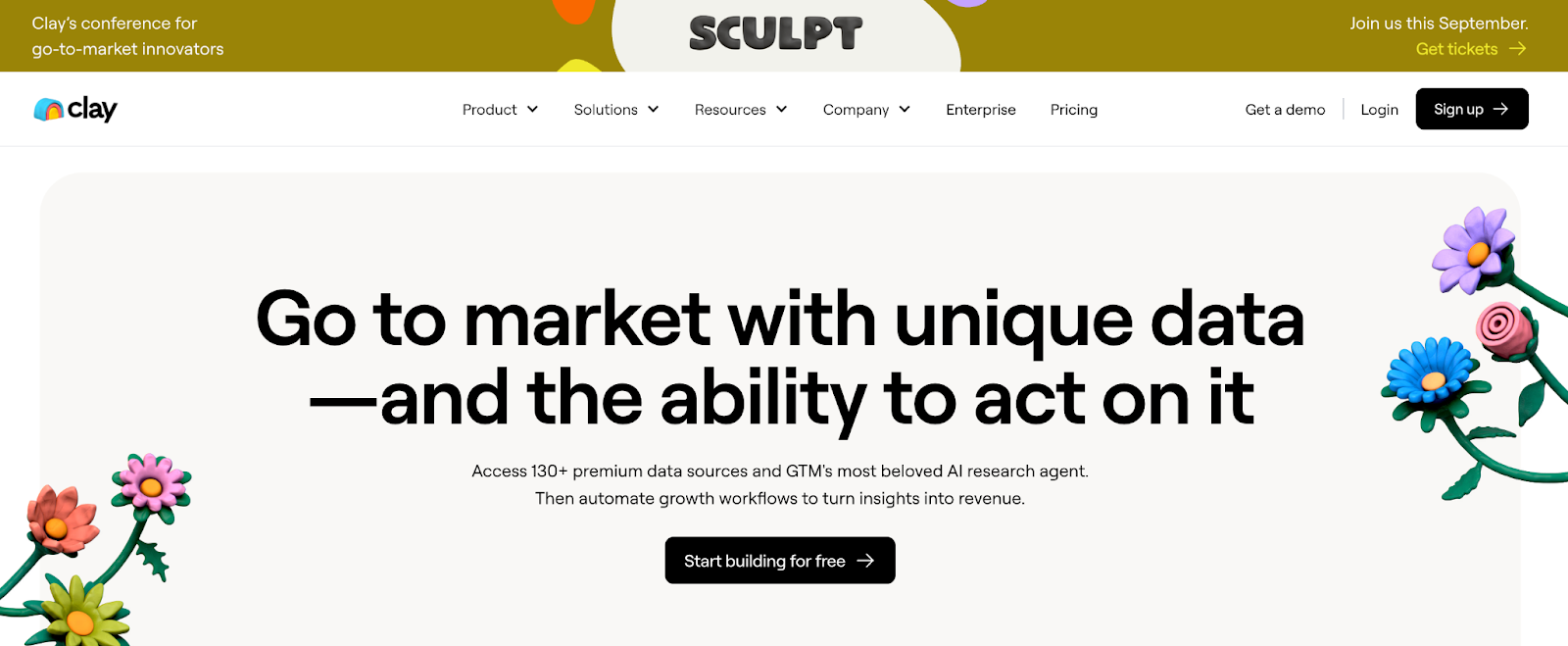 Clay is one of the most comprehensive GTM tools in the market. Pulling its data from over 50 sources, users can identify and connect their ideal buyers in real time. Clay takes sales intelligence deeper with Claygent, an AI-powered research agent that pulls information from the web like funding news and job changes, all without you lifting a finger. It reads websites, parses LinkedIn, and adds human-style context to every lead, so your outreach sounds less robotic and more right on time. Then, there’s multichannel data enrichment, a waterfall process that pulls verified emails, phone numbers, company details, and social signals from over 50 vendors. Instead of relying on one sketchy data source, Clay searches the database of each vendor to provide their verified contact information, preventing wasted outreach. Clay stands out for its flexibility, as you can build complex workflows or target hyper-specific prospects from the platform. Clay lets you build your workflow exactly how you want. No limits. Just logic and results. Pros
Cons
Customer Review “So much to do, so much to learn. But the best part is the community around the tool.” - Shivam. J, on G2. Pricing Clay’s paid plan starts at $159 per month. Also read: Clay vs ZoomInfo: Which Sales Intelligence Platform is Better? 8. Amplemarket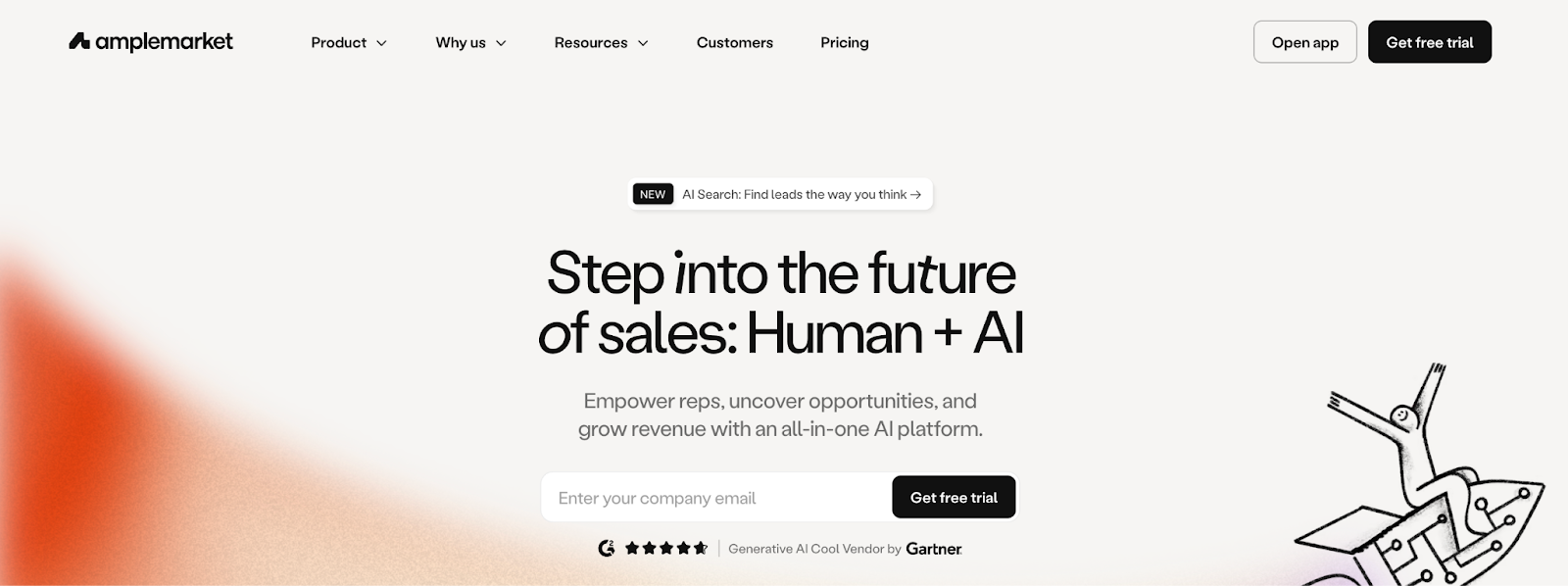 Amplemarket is an AI all-in-one solution that also connects you with ideal buyers. One of its key features is its buying intent signals, which zero in on exact individuals researching your competitors. The AI sales lead generation software pulls publicly available behavior (like LinkedIn engagement and competitor mentions), filters for your ICP, and sends you alerts when people are actively evaluating tools like yours, so you don’t pitch the wrong person. What deepens its impact is the multichannel AI‑driven engagement engine (“Duo” copilot). Whether it’s email, voice, LinkedIn messages, or calendar touches, Amplemarket weaves intent data into personalized outreach. Its AI copywriter drafts hyper‑relevant messages, and the platform handles deliverability warmup, spam checks, and domain reputation, so your messages land where they matter. Pros
Con
Customer Review “Super insightful tool for identifying sales signals - it's easy to use and implement, I use it every day. It gives me new trigger points for companies and personas, e.g., looking at certain web pages, with people who've been promoted or have had changes at their company, which might indicate it's a good time to reach them and add to a sales cycle. Clear interface and great use of AI” - Lewis. B, on G2 Pricing Amplemarket’s paid plan starts at $600 per month for two users. 9. Ocean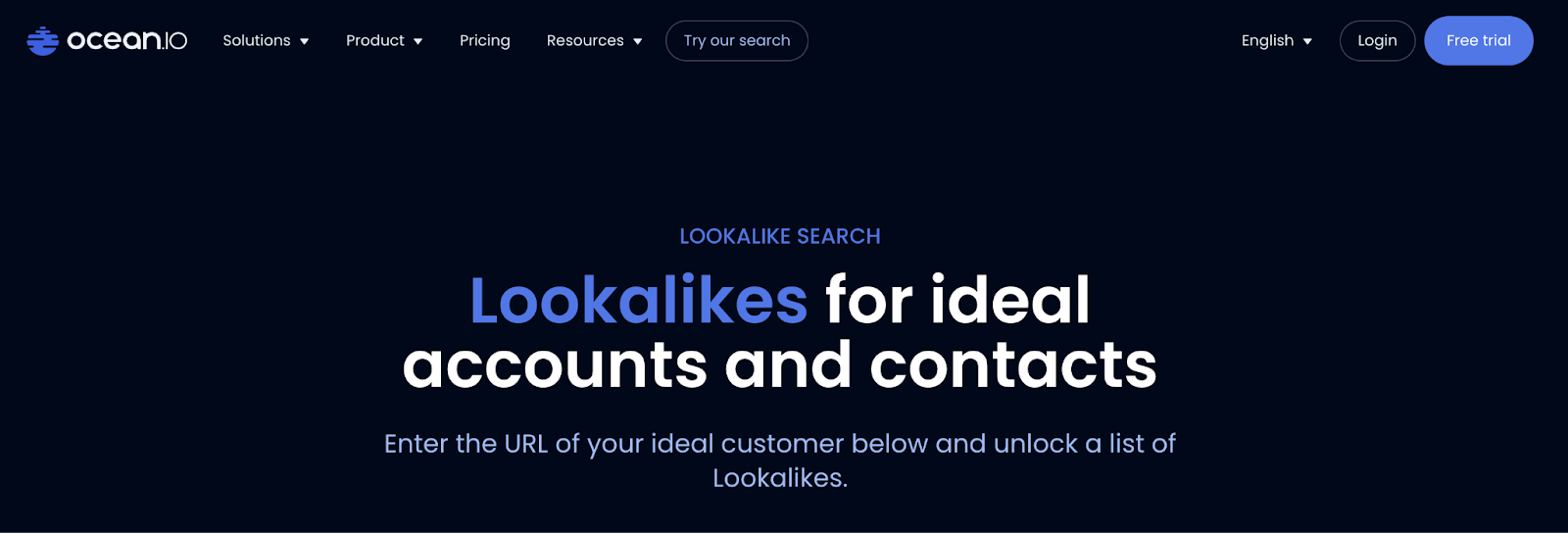 Ocean is the AI-powered platform that lets you target real-fit companies. Feed its search bar a few target accounts, and it builds you a list of high-intent lookalikes complete with firmographics, technographic, and verified contacts to fuel your pipeline. This means instead of guessing who to target next, you’re cloning your best customers with AI accuracy. Then comes its multi-layered data enrichment, which doesn't just hand you basic firmographics. Ocean enhances each company and contact profile with verified emails, phone numbers, revenue data, tech stack, and intent signals so reps don’t just reach out faster, they reach out smarter. What sets Ocean apart is not just company data; it’s lookalike precision. While others rely on simple industry filters, Ocean’s AI finds companies that mimic your best customers at scale, helping you expand into profitable verticals you didn’t even know existed. Pros
Con
Customer Review “Precision in B2B lead generation with the lookalike search feature”- Jason. S, on G2 Pricing Ocean’s pricing plan starts at $79 per month. 10. Trigify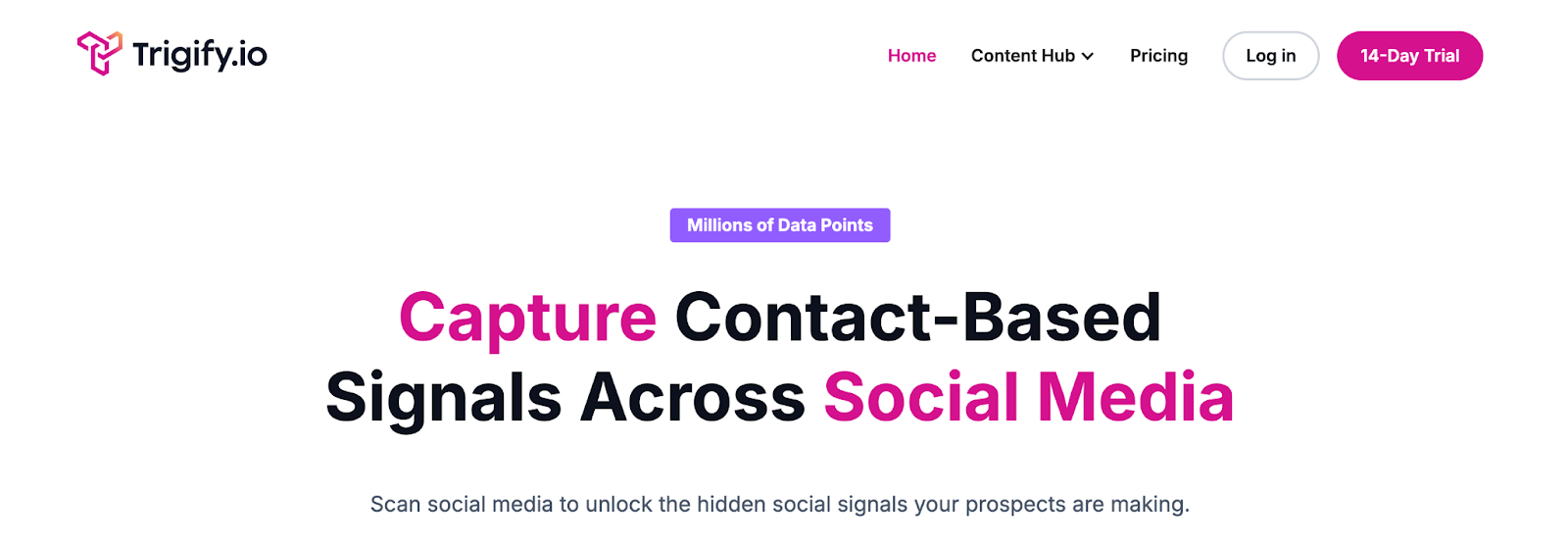 Our final option on the list is Trigify. This platform snaps you into where actual buying intent lives, and that's on social media. It’s not just another data provider; it’s a platform that watches your ICP engage with content, competitors, and trends across channels, turning real-time social signals into your next outreach moment. Trigify monitors platforms like LinkedIn for engagement and identifies individuals who repeatedly show interest in topics or competitors related to your product. So instead of emailing coldly, you connect at the exact moment someone is raising their hand or interacting with your space. The platform also deepens the intelligence in AI-triggered engagement workflows (Triggers). Once a signal like a viral post or new role hits, Trigify automatically pushes enriched contact data, provides AI-recommended email or message copy, and queues it up for your sales representatives. That means your team doesn’t miss a single engagement window, not because they were busy, but because Trigify made sure they were ready. Pros
Con It has limited independent user reviews. Customer Review N/A Pricing Trigify's paid plan starts at $149/month. Recommended: The Ultimate Guide to Using AI in Sales How to Choose the Best Sales Intelligence Software for Your BusinessChoosing the best sales intelligence tool means weighing several practical factors. Amongst so many, let's check out the most important. 1. Data qualityThe effectiveness of any sales intelligence tool depends on the accuracy and compliance of the data it delivers. Outdated or incorrect contact information wastes time and can damage your sender's reputation or outreach efforts. Prioritizing tools with verified, real-time data ensures your team spends more time talking to the right people and less time cleaning up bad leads. 2. Ease of onboarding and learning curve Complex platforms with steep learning curves can slow down adoption and reduce overall ROI. A tool is valuable as your team’s ability to use it effectively and quickly. Choosing a solution that’s intuitive and easy to onboard ensures your sales team can hit the ground running without constant support. 3. Integration capabilitiesThe right sales intelligence software works best when it seamlessly connects with your existing CRM, email, and outreach platforms. Without proper integration, your team may face duplicate work, missed signals, or siloed data that slows down progress. To choose a tool that integrates well, you can have smooth workflows, unified insights, and a more productive sales process. 4. Budget and pricing models Every business has different needs and different budgets. The right sales intelligence tools should align with your company’s size, goals, and how much functionality you actually need at each pricing tier. Whether you're opting for a lean plan or going enterprise-level, be sure to assess what each tier offers and how it supports your sales strategy. 5. Support and communityLast but not least is having your questions or occasional issues solved in a timely manner. Strong customer support and an active user community can make all the difference when you want to learn new use cases. Invest in a tool that supports your team beyond setup, with people and resources that actually show up. ConclusionThere you have it. The 10 best sales intelligence tools that help you find qualified leads that will positively impact your business’s revenue. However, if you want to harness the full potential of various AI sales tools, we recommend partnering with ColdIQ. Our sales experts understand the nooks and crannies of these tools to maximize their full potential, filling your pipeline with qualified leads. Book a demo with us today! Frequently asked questions about sales intelligence tools1. What is sales intelligence?Sales intelligence refers to the collection, analysis, and application of data to help sales teams find, understand, and engage with potential customers more effectively. 2. What is sales intelligence software?Sales intelligence software is a digital tool that automates the process of collecting and analyzing sales-relevant data. It helps sales professionals discover high-quality leads, understand buyer intent, personalize outreach, and make data-driven decisions. 3. What are the benefits of sales intelligence tools?Sales Intelligence tools lead to better lead targeting through enriched contact and firmographic data, faster sales cycles by surfacing high-intent prospects, and higher conversion rates through informed engagement. 4. What’s the difference between sales intelligence and CRM software?Sales intelligence helps you find and qualify leads while CRM helps you manage and nurture them. Michel Lieben is the Founder & CEO of ColdIQ, a B2B sales prospecting agency trusted by 100+ organizations. He’s launched hundreds of outbound campaigns, mastered tools like Clay and Lemlist, and shares sharp, actionable insights on scaling sales with AI, automation, and strategy. FAQWhat are the main challenges when integrating sales intelligence tools with existing CRMs? Integration often requires data mapping and synchronization to avoid conflicts. It can cause temporary disruptions if not carefully managed. Planning integration steps and backups helps prevent loss of valuable sales data. How can sales intelligence tools improve sales team collaboration? They centralize lead insights and allow sharing of notes and updates in real time. This helps teams stay aligned on follow-ups and strategies. Improved visibility reduces duplicated efforts and speeds up closing deals. What types of data sources do sales intelligence tools usually combine? They pull information from social media, company websites, public records, and proprietary databases. Combining these creates richer lead profiles with context like job changes or recent funding. This depth supports personalized and timely outreach. In what ways do sales intelligence tools support compliance with data privacy laws?Many tools automatically exclude or flag contacts that lack proper consent. They maintain audit trails and update data handling processes according to regulations. This reduces risk of fines and damage to the company’s reputation. How often should sales intelligence data be refreshed for effective use?Ideally, updates happen daily or in real time to capture new signals like intent changes. Frequent refreshes ensure leads do not go stale, keeping outreach relevant. However, the update frequency can depend on industry pace and tool capabilities. Available to Hire Let's Get Started!Schedule a 30-minute call with ColdIQ leadership to learn how our outbound strategy and sales tools help generate qualified leads and close deals. Thank you! Your submission has been received! Oops! Something went wrong while submitting the form. .avif) |
.svg)


